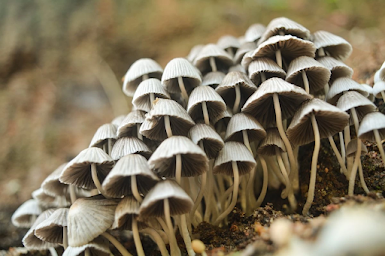Psilocybin mushrooms, sometimes referred to as "magic
mushrooms," are a category of fungus that include hallucinogenic ingredients.
These fungi have a long history of usage in religious rituals and conventional
medicine. They are now a well-liked recreational substance, and research is
being done to look at their possible medicinal advantages.
History
There is a long history
of psilocybin mushrooms, with evidence of their use going back thousands of
years. Psilocybin mushrooms were used extensively in religious rituals across
Mesoamerica, and paintings and artwork from ancient civilizations like the
Aztecs and the Maya contain images of mushrooms. In addition,
psilocybin-containing plants have long been used for spiritual and therapeutic
purposes by the local indigenous population of the Amazon region.
Effects
The chemical psilocybin,
which the body transforms into psilocin, is what gives psilocybin mushrooms
their hallucinogenic effects. Psilocin alters perception, mental processes, and
emotional responses via interacting with serotonin receptors in the brain.
Psilocybin
mushrooms' effects can change based on several
variables, including dosage, personal tolerance, and the environment of the
encounter. Users may notice visual distortions, adjustments to mood and
perception, as well as a heightened sensation of creativity and introspection,
at low to moderate dosages. Users may encounter strong psychedelic effects at
greater dosages, such as hallucinations, deeply altered states of
consciousness, and a sensation of identity loss.
Application
Possibilities
There may be therapeutic
uses for a variety of mental health issues, such as addiction, depression, and
anxiety, according to research on psilocybin mushrooms. Psilocybin-assisted
therapy has been demonstrated in studies to significantly alleviate
treatment-resistant depression, with benefits continuing for weeks or even
months following the session.
Additionally,
psilocybin-assisted therapy has demonstrated potential in the treatment of
addiction, especially to drugs like nicotine and alcohol. This is believed to
be a result of psilocybin's capacity to encourage introspection and raise
emotions of kinship and empathy, which can help people understand their
addictive habits and make constructive adjustments.
Conclusion
The history of psilocybin mushrooms is
extensive, and there are several possible medical uses for them. Although they
are still regarded as illicit substances in many nations, the study is being
done to determine their advantages and possible drawbacks. It is crucial to
approach the use of psilocybin mushrooms with caution and respect as knowledge
about them develops and to put safety and responsible use first.







